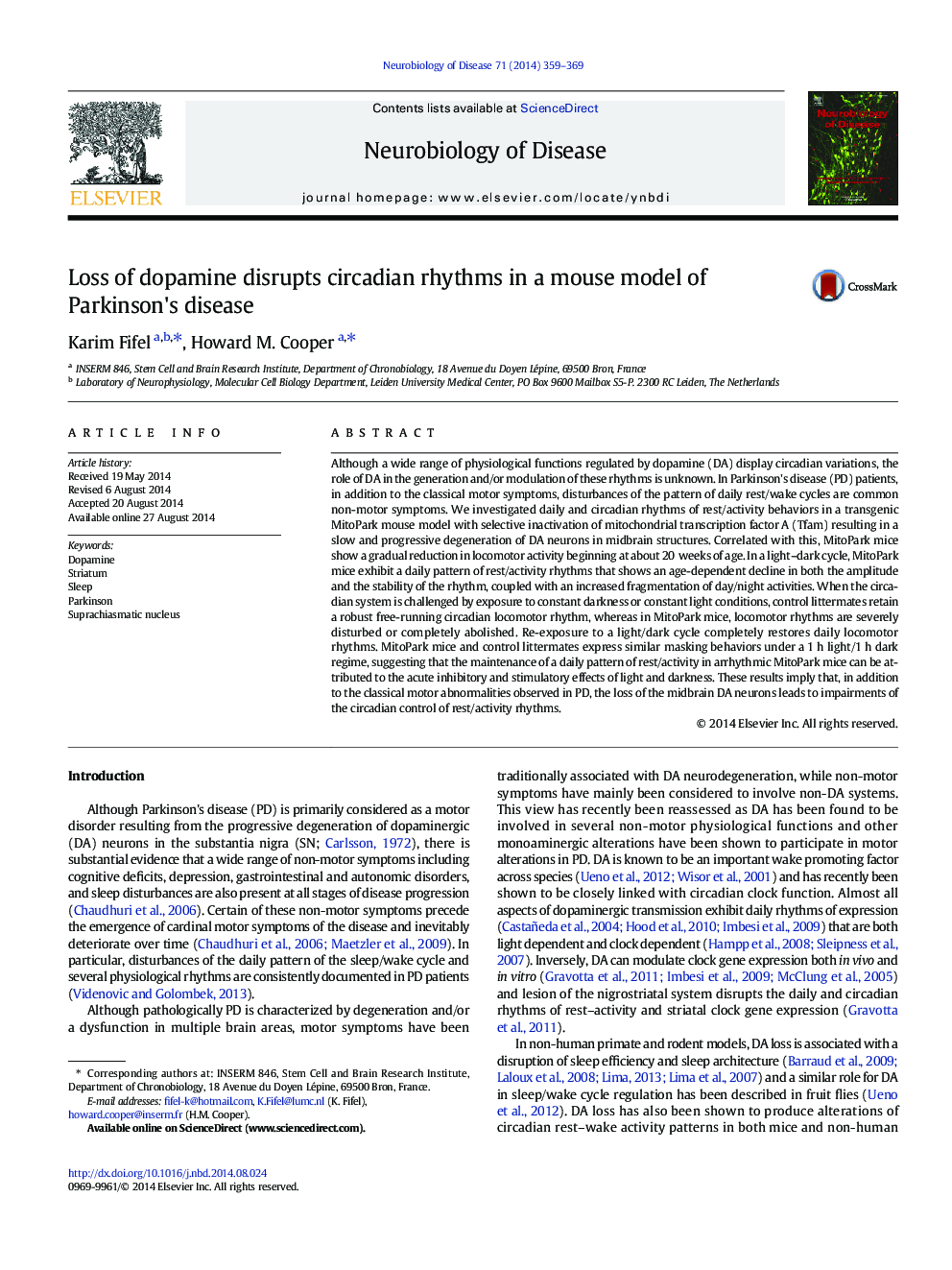| Article ID | Journal | Published Year | Pages | File Type |
|---|---|---|---|---|
| 6021836 | Neurobiology of Disease | 2014 | 11 Pages |
•Selective loss of dopamine leads to circadian alterations of rest/activity cycle.•Masking effect of light is not affected by dopamine neurodegeneration.•Dopamine loss might contribute to circadian alterations reported in PD patients.
Although a wide range of physiological functions regulated by dopamine (DA) display circadian variations, the role of DA in the generation and/or modulation of these rhythms is unknown. In Parkinson's disease (PD) patients, in addition to the classical motor symptoms, disturbances of the pattern of daily rest/wake cycles are common non-motor symptoms. We investigated daily and circadian rhythms of rest/activity behaviors in a transgenic MitoPark mouse model with selective inactivation of mitochondrial transcription factor A (Tfam) resulting in a slow and progressive degeneration of DA neurons in midbrain structures. Correlated with this, MitoPark mice show a gradual reduction in locomotor activity beginning at about 20 weeks of age. In a light–dark cycle, MitoPark mice exhibit a daily pattern of rest/activity rhythms that shows an age-dependent decline in both the amplitude and the stability of the rhythm, coupled with an increased fragmentation of day/night activities. When the circadian system is challenged by exposure to constant darkness or constant light conditions, control littermates retain a robust free-running circadian locomotor rhythm, whereas in MitoPark mice, locomotor rhythms are severely disturbed or completely abolished. Re-exposure to a light/dark cycle completely restores daily locomotor rhythms. MitoPark mice and control littermates express similar masking behaviors under a 1 h light/1 h dark regime, suggesting that the maintenance of a daily pattern of rest/activity in arrhythmic MitoPark mice can be attributed to the acute inhibitory and stimulatory effects of light and darkness. These results imply that, in addition to the classical motor abnormalities observed in PD, the loss of the midbrain DA neurons leads to impairments of the circadian control of rest/activity rhythms.
